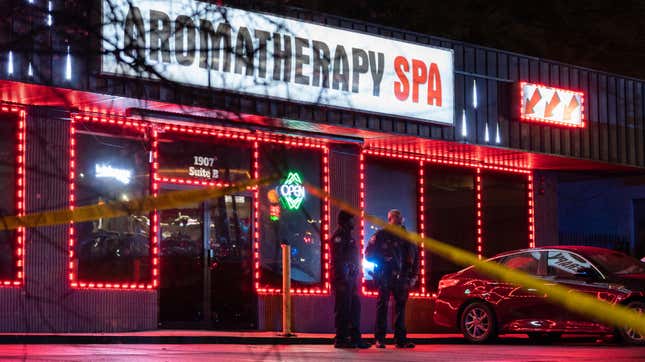The Undeniable Legacy of Anti-Asian Violence
Latest

It takes at least 30 minutes to drive from Young’s Asian Massage Parlor in Acworth, Georgia, to the nondescript block in the northern Atlanta suburb of Buckhead where one can find another cluster of Asian massage parlors, including Gold Spa and Aromatherapy Spa. On Tuesday, according to local law enforcement authorities, an armed gunman made that drive, killing four people and injuring another at Young’s Asian Massage Parlor and then three women at Gold Spa before he went across the street to shoot and kill another woman at Aromatherapy Spa. Seven of the people killed were women, and six were Asian women. As several outlets have reported, four of those women were Korean American.
-

-

-

-

-

-

-

-

-

-

-

-

-

-

-

-

-

-

-

-

-

-

-

-

-

-

-

-

-

-

-

-

-

-

-

-

-

-

-

-








































